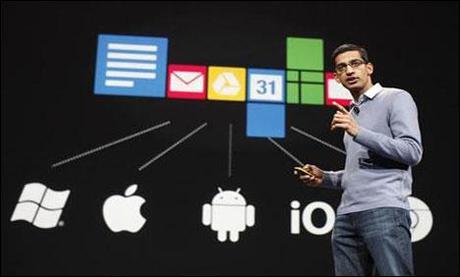Google’s browser, Chrome released for iPhones and iPads on Thursday, is becoming much popular free application despite some limitations imposed by Apple.
Google just play competition on iPhone and iPad. Since Thursday, its Chrome browser is available for free download on the App Store, the Apple application store. Hours later, he had already climbed to the top spot of most popular applications in the United States.

The version of Chrome for iPhone and iPad includes many of the good ideas of its equivalent for Mac and PC. It offers synchronization with the Google account, which can find his tabs, favorites, passwords and browsing history on his computer. It offers a search bar and unique address. It has a clever system of tabs and a minimalist interface.
Video of Google Chrome on PC, iPhone and tablets:
Within four years, Chrome has become the second most used browser on the computer, behind Internet Explorer, but Firefox before. On mobile and tablets, however, the application of Apple, Safari, remains the most popular, with 64% of the market in May, according to NetMarketShare. Safari is actually installed by default on the iPhone and the iPad, where competition in this area was marginal so far.
Mozilla is also developing a browser for iPad
Apple has long banned on iPhone software duplicating the functions of its own applications, like Google Voice. This constraint was gradually lifted. But there remains other, more discreet. For example, users of iPhone and iPad still cannot choose to default browser. All clicked links from other applications will continue to open in Safari, not Chrome.
The other limitation is more technical. To display web pages, the alternative browsers must use the same rendering engine as Safari, WebKit. But for security issues, Apple blocked access to a component (the Nitro JavaScript engine) supposed to speed up loading of pages. Result, the navigation is significantly slower in Chrome than Safari.
To stand out, the alternative browsers must stake everything on their interface and innovative features. The Mozilla Foundation, which cannot adapt Firefox and its Gecko layout engine on iPhone and iPad, today is also working on a browser project that will bend to the constraints of Apple, while “completely rethinking the user experience “she vows.
